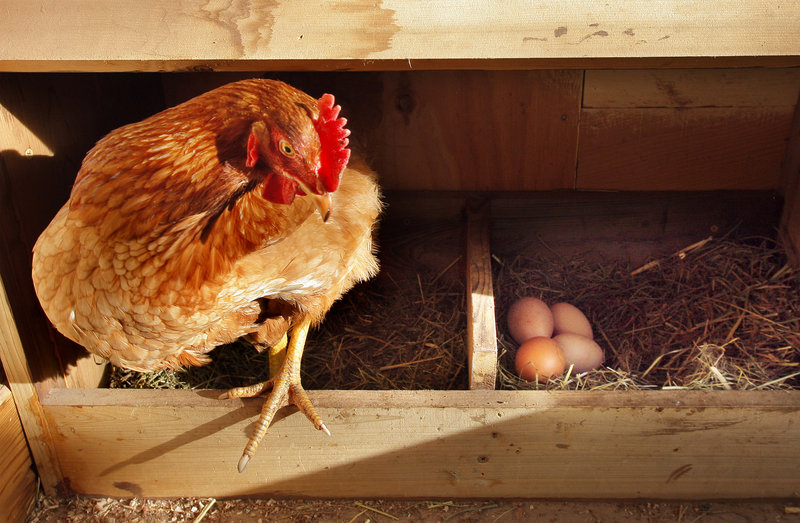Whether you’d like to learn new mulching techniques to better hedge against Maine’s cold winters or you’d like to find out how to save seeds in order to take a practical and political stand against corporate control of the food system, you’ll want to attend the Local & Sustainable Food Conference on Saturday and Sunday in Lewiston.
Now in its fifth year, the conference’s theme is building urban-rural alliances, but its objective is much broader.
“It’s always been focused on how we can increase the number of farmers and food producers,” said organizer Bob St. Peter of Food for Maine’s Future.
To encourage more home-grown food production, the conference includes a number of roundtable discussions and a series of skill-sharing sessions designed to teach traditional ways of raising, preparing and distributing food.
These sessions will explore how to start a community garden, make kombucha, raise backyard chickens, create a school garden, start a buying club, use sheet mulching and save seeds.
“It’s really been a participatory conference from the beginning,” St. Peter said. “We want a conference people are really interested in and will see something come out of. It’s a great time to network.”
A central issue for the conference this year is how rural farmers can sell more of their products in the local community, rather than trucking them to nearby cities and towns.
One of the sticking points here is the issue of money and the fact that many farmers travel to particular farmers markets because they draw large crowds of people willing to pay higher prices for food than what the farmers would find in their hometowns.
Part of the solution could come in redirecting federal agricultural subsidies that flow to corporate commodity farmers. A more realistic approach could involve educating Maine people to revalue food. On average, Americans spend less than 10 percent of disposable income on food, making our food some of the cheapest in the world — which, many argue, is a reflection of the food’s quality.
“We have a food system that’s set up to make the wrong food cheap,” St. Peter said. “If you value something, you’re willing to pay more for it. We spend more than the average family on food, and we don’t make a lot of money. But we value it.”
This type of philosophical discussion is sure to be featured prominently in the conference. It will come up during the roundtable talks focused on feeding rural residents, getting young people involved in farming, supporting grass-roots food distribution and growing food in non-farm environments. It will also be central to the remarks Mark Silber will deliver on Sunday.
Ahead of a roundtable discussion titled “Whose Rules? Balancing Food Safety, Food Traditions & Food Policy,” Silber will talk about how local food issues in Maine connect to global agricultural trends.
“What has always concerned me is that there are very few people controlling the food supply in the whole world,” said Silber, who has farmed in Maine since the ’70s and is an assistant professor of cultural anthropology at the University of Southern Maine. “Previously, farmers could save their own seeds, which had evolved to be compatible with the environment. Now what we try to do is create one crop that’s compatible with all environments. That’s not possible, and it also leads to more diseases and calamities. Diversity is what ensures a buffer against disease.”
According to Silber, the most important thing each of us can do to create a more sustainable food future is to grow or raise some of our own food.
“Maine, like any region of the United States, needs to focus on local food production,” Silber said. “We need to promote local gardening in every way possible. Every little bit helps, because it reduces energy usage and it also creates a buffer in the case of calamity.”
Staff Writer Avery Yale Kamila can be contacted at 791-6297 or at: akamila@pressherald.com
Send questions/comments to the editors.


